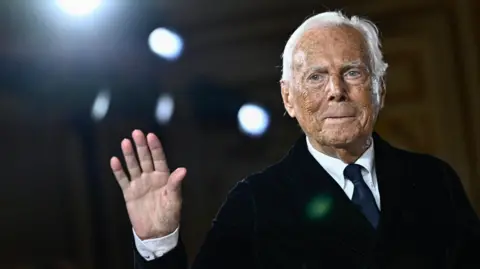Algerian author Kamel Daoud has made history as the first writer from Algeria to win France's prestigious Goncourt Prize, with his novel "Houris." The book provides a haunting depiction of Algeria's brutal civil war during the 1990s, which resulted in the deaths of approximately 200,000 individuals due to violence attributed to both Islamist forces and the military. The novel revolves around the character Fajr, a woman afflicted by the war, who narrates her traumas while pregnant.
The Goncourt committee highlighted how Daoud's poignant narrative gives voice to the suffering experienced during this dark chapter in Algerian history, particularly from a feminine perspective. However, the recognition is juxtaposed against a backdrop of silence within Algeria. The novel currently lacks a local publisher, and the French publisher, Gallimard, has been barred from participating in the Algiers Book Fair. In fact, since the award announcement, Algerian media has largely ignored Daoud's accomplishment.
Daoud, now residing in Paris, faces potential legal repercussions under a controversial 2005 law that criminalizes the public discussion of the civil war's aftermath. He expressed concern that the reality of the conflict remains unacknowledged in Algeria, stating that the war's history is not taught in schools.
His experience as a journalist during the turmoil led him to confront the grim reality of reporting about the violence; he recalled how the authorities would alter casualty counts for propaganda purposes. Although some view Daoud as a traitor for his critical stance towards the Algerian government, others celebrate his literary prowess and insights into societal issues, particularly regarding women's rights.
Through "Houris," Daoud aims to inspire reflection on the cost of freedom and advocate for an honest confrontation of Algeria's entire historical narrative. His previous works, including "Meursault Investigation," have already established him as a significant figure in literature. Since moving to France in 2020, he emphasizes the literary freedom that has allowed him to pen his thoughts unencumbered. In his own words, “France gave me the freedom to write… To write you need three things: a table, a chair, and a country. I have all three.”
The Goncourt committee highlighted how Daoud's poignant narrative gives voice to the suffering experienced during this dark chapter in Algerian history, particularly from a feminine perspective. However, the recognition is juxtaposed against a backdrop of silence within Algeria. The novel currently lacks a local publisher, and the French publisher, Gallimard, has been barred from participating in the Algiers Book Fair. In fact, since the award announcement, Algerian media has largely ignored Daoud's accomplishment.
Daoud, now residing in Paris, faces potential legal repercussions under a controversial 2005 law that criminalizes the public discussion of the civil war's aftermath. He expressed concern that the reality of the conflict remains unacknowledged in Algeria, stating that the war's history is not taught in schools.
His experience as a journalist during the turmoil led him to confront the grim reality of reporting about the violence; he recalled how the authorities would alter casualty counts for propaganda purposes. Although some view Daoud as a traitor for his critical stance towards the Algerian government, others celebrate his literary prowess and insights into societal issues, particularly regarding women's rights.
Through "Houris," Daoud aims to inspire reflection on the cost of freedom and advocate for an honest confrontation of Algeria's entire historical narrative. His previous works, including "Meursault Investigation," have already established him as a significant figure in literature. Since moving to France in 2020, he emphasizes the literary freedom that has allowed him to pen his thoughts unencumbered. In his own words, “France gave me the freedom to write… To write you need three things: a table, a chair, and a country. I have all three.”


















